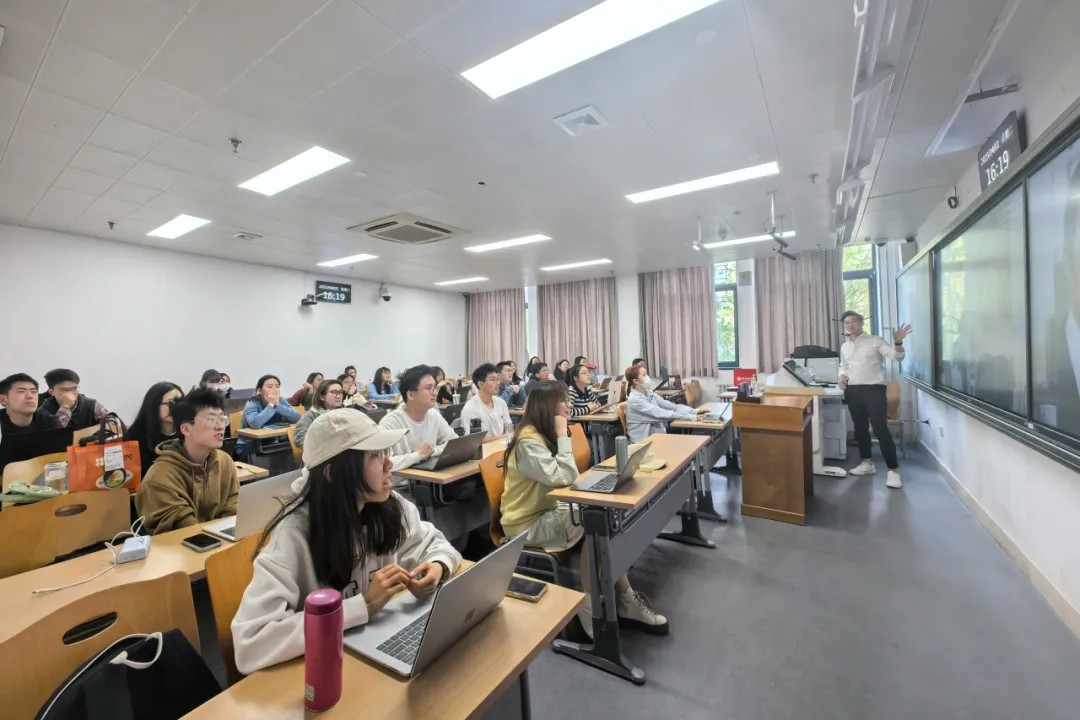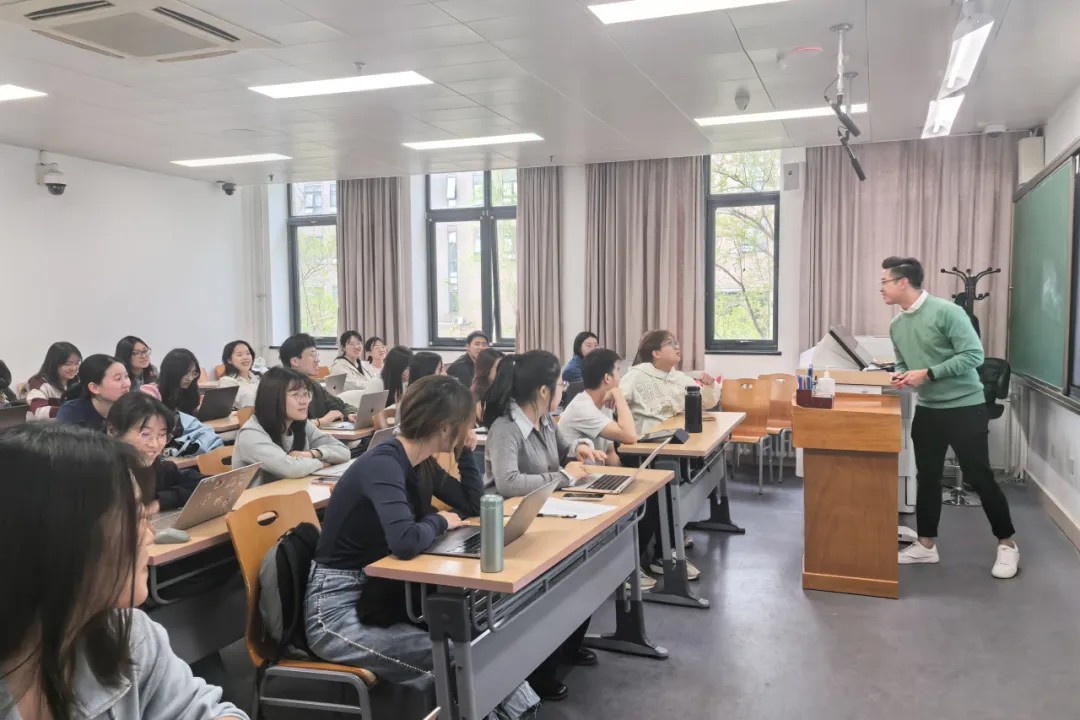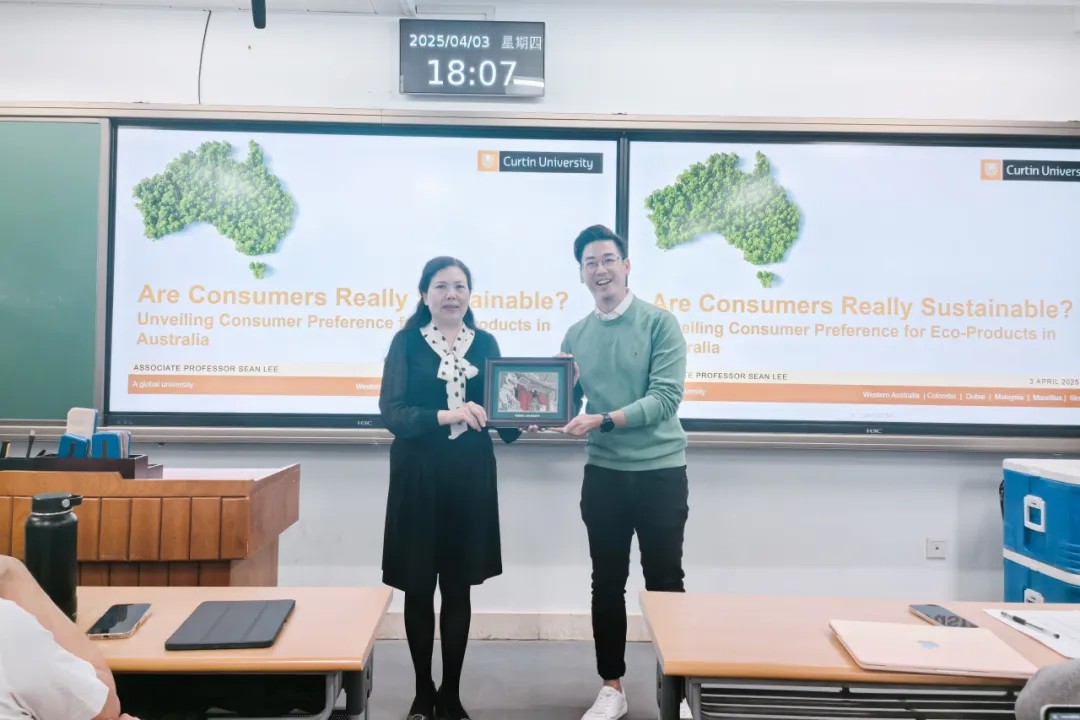 >Home>
SEPKU News
>Home>
SEPKU News
On April 1-3, 2025, Dr. Sean Lee, Associate Professor at the School of Management and Marketing, Curtin Business School, Australia, was invited to visit the School of Economics, Peking University. During his visit, he delivered a series of four academic lectures as part of the “International Marketing” course. Focusing on topics such as market entry strategies in Australia, consumer behavior research, and sustainable consumption, the lecture series provided faculty and students with cutting-edge insights into international marketing. The sessions were moderated by Professor Wu Qiaoling from the Department of International Economics and Trade.
In the first lecture, Dr. Sean Lee explored the impact of cognitive bias on market entry strategies and internationalization decisions. He emphasized that individuals’ perceptions of markets are shaped by their prior experiences and assumptions, which often lead to flawed entry strategies and, consequently, failures in international expansion. Dr. Lee highlighted the importance of conducting comprehensive on-site market research to avoid such pitfalls. During the case discussion, students applied their theoretical framework to analyze the effectiveness of various market entry strategies for Chinese firms entering the Australian market, identifying potential cognitive blind spots.

In the second lecture, Dr. Lee discussed the unique characteristics of the Australian market, examining consumer habits, cultural traits, and real-world cases of international brands. He noted that some global brands, influenced by a homogenized Western market mindset, struggled to adapt their strategies in Australia. Through case studies such as Starbucks and Amazon, he analyzed strategic missteps and provided valuable lessons for Chinese enterprises expanding abroad.

In the third lecture, Dr. Lee investigated the gap between consumer attitudes and actual purchasing behavior based on cross-sector studies in Australia. He evaluated the effectiveness of green marketing strategies and explored how firms can bridge the gap between consumer intention and action. He pointed out that despite widespread support for the UN Sustainable Development Goals, most consumers are unwilling to bear higher costs or sacrifice convenience. Thus, behavioral analysis is more insightful than verbal responses in consumer studies. The lecture also covered key consumer theories, including perceived value and willingness to sacrifice, and individual differences in sustainable consumption, offering a critical perspective on real-world sustainable behavior in Australia.
In the fourth lecture, Dr. Lee presented the latest innovations from the Curtin University Consumer Research Lab, which applies neuroscience technologies to study consumer behavior. He introduced tools such as eye-tracking, EEG, and facial recognition to analyze subconscious responses and emotional drivers in decision-making. For instance, eye-tracking heat maps can pinpoint areas of consumer interest, while EEG monitoring helps quantify emotional reactions and optimize the user experience. Through real-world case studies, Dr. Lee demonstrated how these techniques improve marketing and advertising effectiveness. He also shared emerging trends in consumer research, including AI-driven neuromarketing, VR-based consumer testing, and biometric-driven personalization, offering students valuable foresight into the future of consumer psychology.

After Dr. Lee’s lecture, attendees actively discussed topics like sports equipment globalization, multinational risk mitigation, Australian consumer behavior, and psychophysiological research in consumer labs.
In the closing remarks, Professor Wu Qiaoling thanked Dr. Sean Lee for his academically profound and practically valuable lectures. Dr. Lee expressed his delight in visiting Peking University and was impressed by student engagement. The lectures provided students with a valuable opportunity to interact with an international scholar on frontier research, expanding their global outlook.

